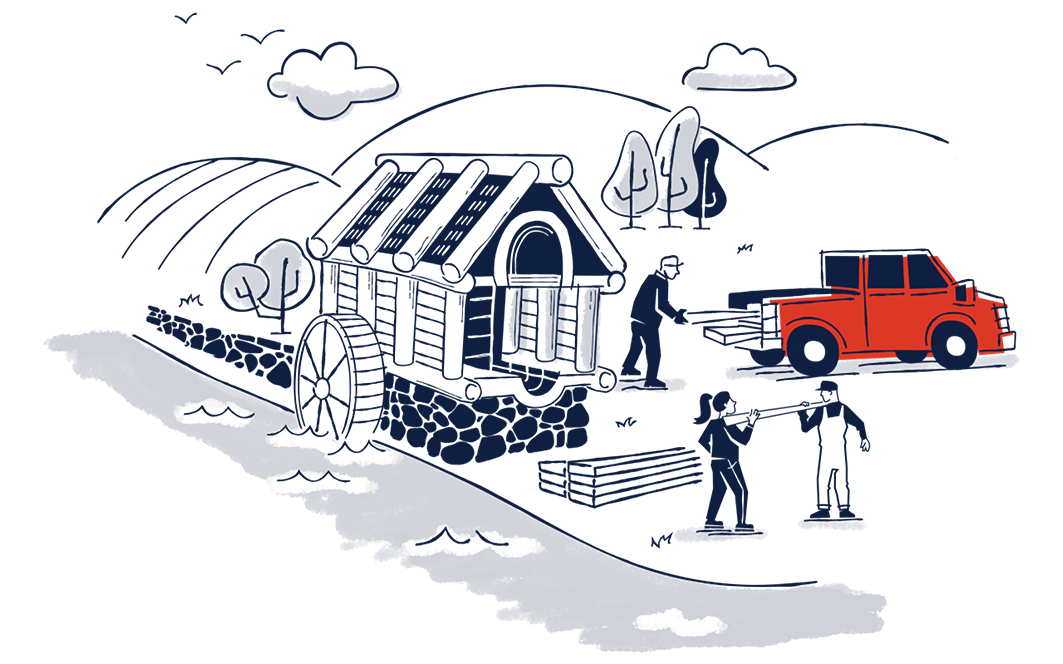Conservative Economics
Family, community, and industry provide the foundation for our nation’s liberty and prosperity

Conservative economics gives policymakers the tools to understand capitalism and harness its power for the benefit of American workers, their families and communities, and the national interest. It rejects the market fundamentalism of libertarians who see capitalism as nothing more than economic “freedom” and thus expect a policy agenda of tax cuts, deregulation, free trade, and union-busting to unleash the economy’s productive forces. It likewise rejects the instinctive hostility toward markets from progressives, who see government as the more effective mechanism for solving most problems.
Conservatives value the unique ability of the free market to allocate resources efficiently and empower people to meet one another’s needs, to limit the power of a central government and place it instead in the hands of those best positioned to take care of their own interests, and to evolve over time in response to real-world conditions rather than at a bureaucrat’s whim. Markets are themselves institutions through which people develop informal codes and formal rules for cooperating and transacting more effectively. Humanity achieved greater progress in its living standards through just a few centuries of market-driven innovation and productivity than through all of history’s prior millennia.
But conservatives also recognize that markets have drawbacks and limitations. The free market can reduce people to consumers and relationships to transactions. It prioritizes efficiency over resilience, and individual self-interest over the common good. Under the right conditions, the pursuit of private profit powerfully advances the public interest, but such conditions are never assured. Free markets have assigned higher value to hedge fund management than job-creating entrepreneurship, and rewarded offshoring to China over investing in local communities.
Thus, in conservative economics, free markets are a means to an end, not an end unto themselves. They are necessary but not sufficient to the economy’s proper ends—not only rising consumption, but also expanding the nation’s productive capacity, preserving its institutions, and supporting its families. Capitalism has an unparalleled ability to generate widespread prosperity. But it succeeds only when competing firms pursue profit by investing in the productive use and fair compensation of labor, and when people are well-equipped to engage in the market as entrepreneurs and workers and in their communities as citizens. Public policy plays an indispensable role in maintaining those conditions.
At American Compass, we work to restore this conservative economic tradition, atop which our nation rose from colonial backwater to continent-spanning industrial colossus. We believe that conservative economics demands a focus on:
- Productive Markets: Policymakers must constrain destructive and speculative profit-seeking and channel both talent and investment toward productive pursuits that advance the nation’s liberty and prosperity. Read More
- Supportive Communities: Policymakers must foster the institutions that allow the market to deliver on its promise for workers, their families, and the nation. Read More
- Responsive Politics: Policymakers must focus on the outcomes that people define as most important through democratic politics, rather than merely accepting those deemed most efficient by market logic. Read More
We have explored in depth the application of conservative principles to economic theory and policymaking. The Return of Conservative Economics, published at National Review alongside the announcement of American Compass’s formation, contrasts market fundamentalism with a genuinely conservative approach to economics, while The New Conservatism, published one year later at Foreign Affairs, explains how and why the American right is moving from one toward the other.
Our inaugural collection, Rebooting the American System, makes the case for a robust national economic policy from the perspectives of history, theory, and practice. Wells King’s essay, Rediscovering a Genuine American System, describes the conservative economic tradition atop which America rose from colonial backwater to continent-spanning industrial colossus. Julius Krein’s essay, Planning for When the Market Cannot, highlights the many situations in which public investment can be necessary and effective. And Oren Cass’s essay, Removing the Blinders from Economic Policy, provides a practical framework for applying conservative economics to policymaking.
And each year in our annual report, Cass writes a Founder’s Letter assessing the state of the economic debate on the right. In 2020, Neoliberalism Falls Apart described the economic, social, and political trends that have rendered the old orthodoxy obsolete. In 2021, The Return of Political Economy outlined the challenges that conservative economics is uniquely suited to address, and was delivered as remarks at the Intercollegiate Studies Institute’s conference on The Future of Political Economy.
Start Here

Rebooting the American System
The comprehensive, conservative case for a return to robust national economic policy









